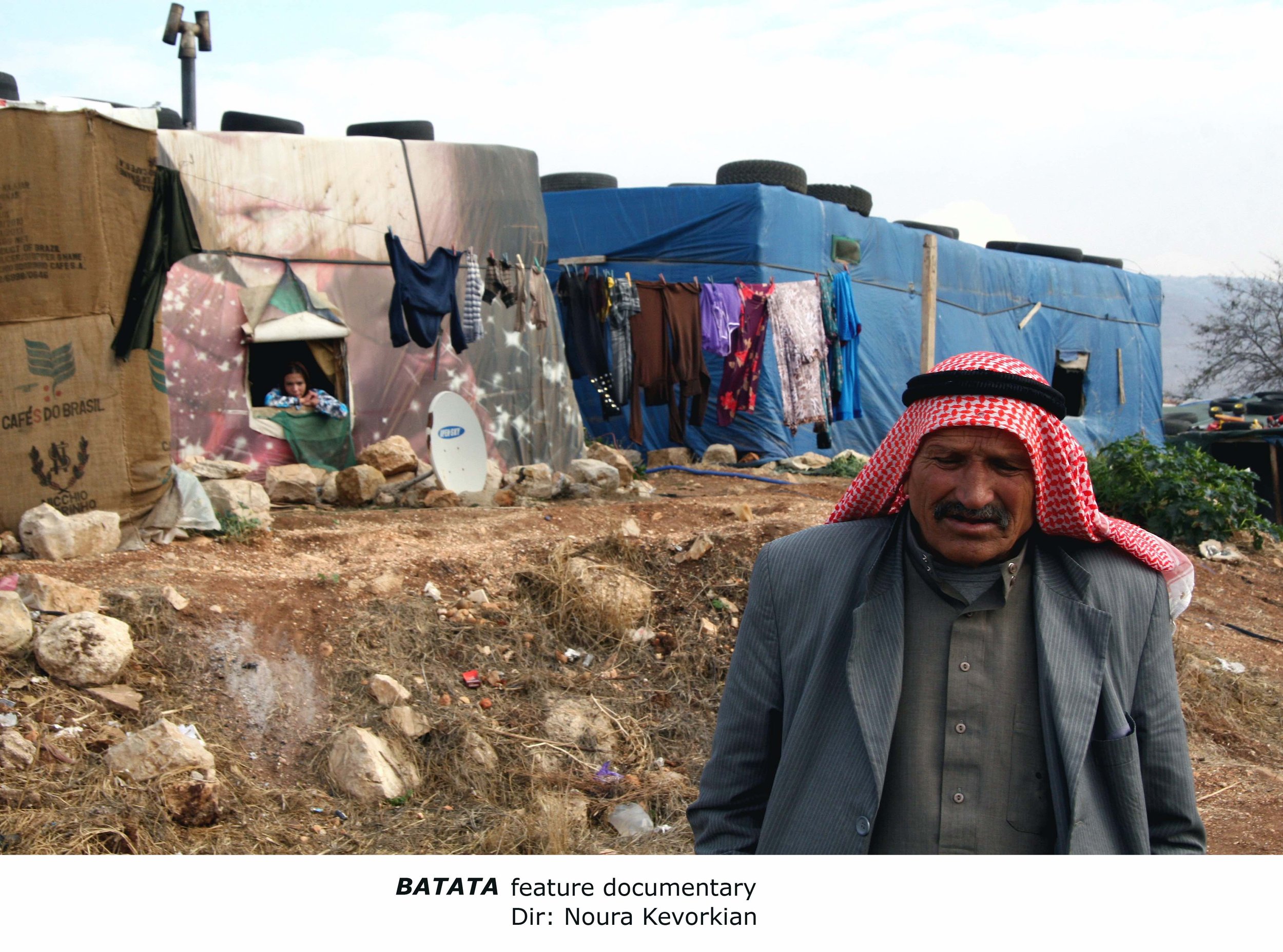Hot Docs '22: Batata Director on Life at a Lebanese Potato Farm/Refugee Camp through Syria and ISIS
By Jim Slotek
It is a fact of documentary filmmaking that nobody can promise anything. Case in point at this year’s Hot Docs Festival: Batata, Noura Kevorkian’s film about life on a Lebanese potato farm, a short walk from the border for the Syrian migrant labourers who work it.
It was expected to be an inspiring story, but it went south fast and stayed that way.
Mousa, the Christian-Lebanese farm owner, hired Muslim Syrians, many of them from the family of Maria, who lived in a village near Raqqa. A genial and generous man, Mousa was fond of Maria’s family and made her the de facto manager when they’d make their seasonal visits to harvest spuds.
Life during wartime in Camp Mousa.
“My original intention was to make a film about the historical tension between Syria and Lebanon,” the Toronto-based filmmaker says. “Two countries, part of my family history. I was born in Syria, my mom is Syrian and my dad is Lebanese.
“In 2008, I went to visit my parents who live in the Raqqa valley. And Mousa came to visit my mom, because he was my mom’s friend. And he offered me a ride in his famous red Chevy truck. And we went to his (labourers’) camp which is nestled in the mountains, such a charming place. And I found this beautiful creature walking with a beautiful red dress, and that was Maria, I met her.
“And I kind of saw the perfect way to tell that story, a strong Syrian woman working for a Lebanese Christian man, a landowner, this amazing, charismatic character. Sometimes they say something is too perfect, and that is what that was.”
Kevorkian came back with her camera yearly, for months at a time, to follow the lives of the people on what would be called Camp Mousa. Meanwhile, in Syria, there was a revolution, followed by civil war, war crimes and… oh yeah, ISIS.
Batata director Noura Kevorkian
A trickle of people walking across that border would turn into a stream and then a torrent. The border potato farms would turn into refugee camps holding thousands.
The impact of all this was slow to take hold as it happened. “It was like the proverbial frog in the pot, it was happening so slowly,” Kevorkian says.
“I thought the revolution, as Maria said, wouldn’t last long. All of us having grown up in the Middle East, politics had been a really big part of our lives. There’s always war, tension, there’s always something going on, it’s everyday news.
“So, the revolution was something we thought would end in five weeks, three months, nobody ever imagined the Syrian Revolution would turn into civil war. And I never, ever thought I was going to spend 12 years of my life, now we’re into the 13th year, making a documentary.”
“By 2013, the beautiful potato fields that were gorgeous, green turned slowly into these ugly, dry, sad refugee camps, every day arriving with trucks, broken hearts and plastic bags carrying their things. I realized that this was it now. It took me a couple of years to realize what was happening, to actually believe it was happening.”
In what amounts to time-lapse filming, Batata becomes a story of more than survival, but also a makeshift “new normal” where weddings take place and babies are born (some of the children we meet have now grown up in Camp Mousa and know nothing else).
“I lived with them in the camps, slept on the floor. There’s the mud and the open sewers. The proximity of the war was nerve-wracking for lots of the people. And the Lebanese army was patrolling because ISIS would come trying to get desperate people to join them from the camps. They don’t have a future or money, so it was the perfect place to recruit.”
Of course, the difference was that Kevorkian would eventually go home each year to pursue other projects to pay bills for her family in Canada.
“I had really bad guilt feelings. I would spend three months with them, and at the end of the day I would pack my gear and come back to Canada where I had electricity, food, family waiting for me. I felt guilty I could do that - and they would resent me for that too.
“I had young children here whose lives I missed out because mommy was always away. I suffered depression, PTSD, it was a huge amount of sacrifice. My daughter is basically related to the film because she was an eight-week-old baby when I strapped her to my chest and traveled to Lebanon to start the film. So, her age is basically the age of the film.
“Maria’s entire family and six million Syrians are still refugees around the world. My heart goes out to the Ukrainian people who are experiencing these horrible things. I’m hoping this gives perspective and foresight and shows people how much wars devastate lives.”



